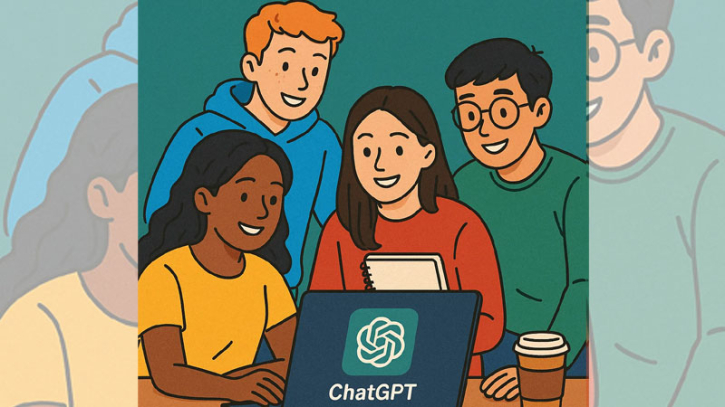ChatGPT: Helpful or intellectually erosive for students

A survey conducted on 3,839 students from 16 countries by the Digital Education Council (2024) found that 66% turned to ChatGPT for their studies. This statistic shows that ChatGPT has quickly become an integral part of study for students worldwide, with a majority using it for brainstorming, research, and writing assistance features.
Although it seems like ChatGPT is full of benefits, it comes with significant challenges such as concern for academic integrity, overreliance that can hinder critical-thinking, and exposure to misinformation. Thus, the big question: Is ChatGPT helpful or intellectually erosive for students' academic activities?
How is Chatgpt helpful?
ChatGPT benefits people in less developed regions with 24/7 learning assistance without spending much on tutors or devices. If a financially insolvent student living in a remote area wants to solve any math problems without an expensive tutor, they can easily do that with ChatGPT. Additionally, ChatGPT offers personalized learning to students based on their pace, interest, and grade level.
Students use ChatGPT to come up with new ideas for research, develop research questions, understand complex concepts, recognize gaps in existing studies, or define problem statements, thus gaining confidence in writing and conducting research. For example, a student writing a research paper on the “application of ChatGPT in higher education.” S(he) can use ChatGPT to draft an outline, generate problem statements, or summarize academic literature.
Language is not a barrier
ChatGPT is a language learning partner that facilitates corrections in grammar and vocabulary, helping students improve their language skills. For instance, an International English Language Testing System (IELTS) candidate can practice speaking or receive instant corrections in writing to enhance fluency and build confidence.
Many students may feel uncomfortable practicing a language with others, and some may be unable to attend a tutor due to financial constraints.
Instead of memorizing, ChatGPT encourages questions like “how" and "why," leading to more profound knowledge and critical analysis.
A student may need an answer to the question, "Why is qualitative research considered the beauty of research?" ChatGPT will not just provide the outright answer. Instead, it will analyze every other research type and compare it to qualitative research to demonstrate its strengths, providing a more comprehensive and significant learning experience for students.
How is Chatgpt more of a crutch than a tool?
Prolonged exposure to ChatGPT and overreliance on it may create a scenario where students start to see learning as a product rather than a process (asking, researching, and discovering), decreasing motivation to probe deeply. In many instances nowadays, students consider AI a bypass rather than devoting time to developing skills by trial, error, and redrafting.
Students who use ChatGPT to draft essays or reports may lose the opportunity to develop their voice, argumentation skills, and creativity. For example, a student who submits AI-generated essays repeatedly may not learn how to structure arguments or use evidence effectively.
Students can circumvent the art of learning by having ChatGPT provide them with ready-made responses, thereby gaining superficial knowledge and less intellectual work. For example, instead of analyzing a historical incident or a mathematical proof, students could utilize AI to summarize and solve problems at the expense of undermining their critical thinking.
Integrity in academics: A serious concern
Preparing assignments with ChatGPT's assistance without proper in-text citations or acknowledgments can be considered academically dishonest and a violation of ethical guidelines and academic integrity. Just think of a student who copied AI-generated responses and pasted them onto assignments, which may go undetected and lead to grades that may not reflect the student's actual knowledge level and performance.
Urgent attention is needed to develop an integrated approach and establish ethical guidelines for students to use ChatGPT in academic settings. Students must also critically evaluate ChatGPT's responses, exercise restraint, and maintain academic honesty.
.png)




